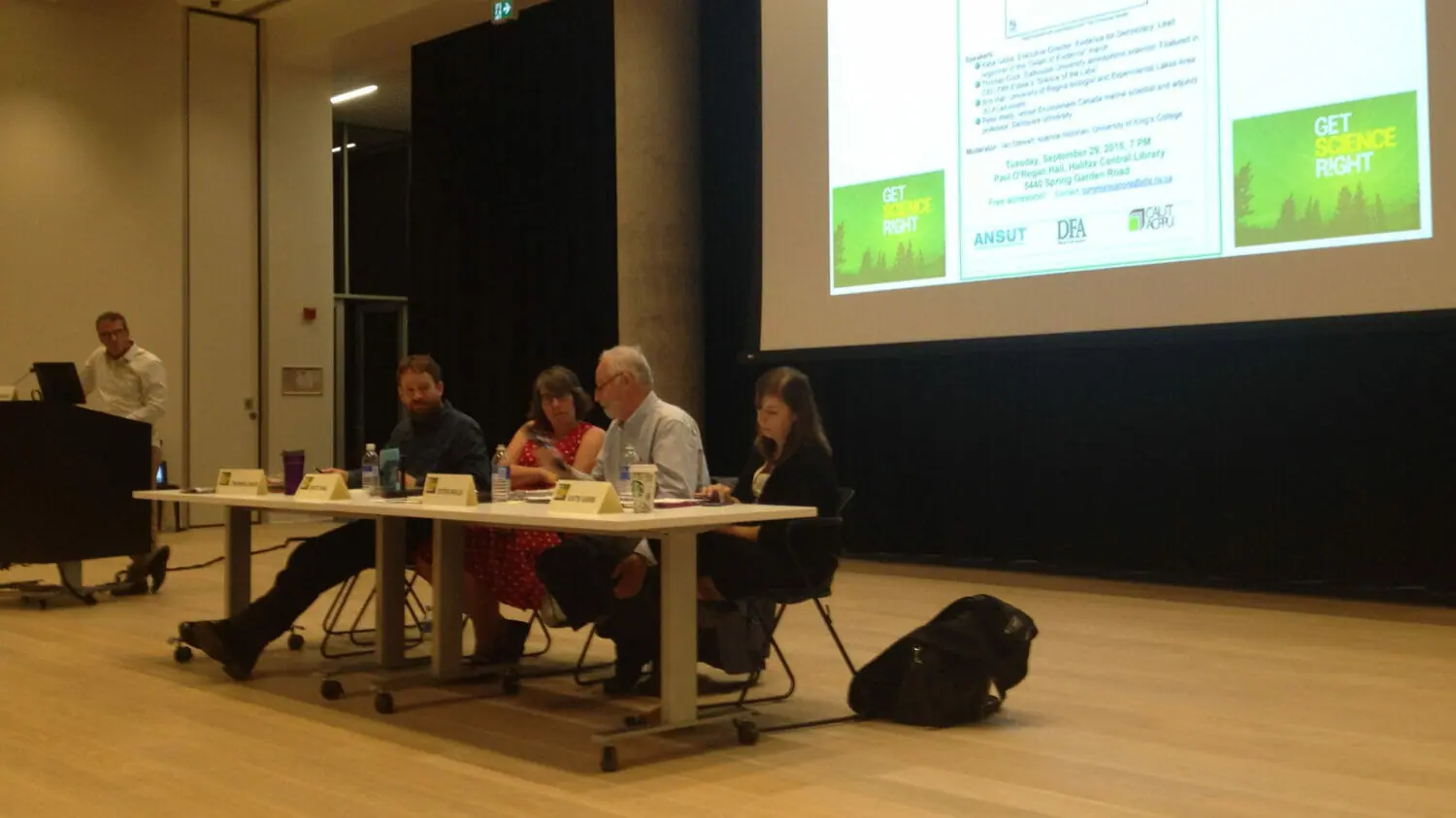A panel of academics called on the public on Sept. 29 to oppose the silencing of Canadian scientists.
“Ninety per cent of scientists said they were not allowed to speak freely and talk to journalists, even if it was about public safety,” said Thomas Duck at a discussion on the role of science in the public interest.
The Get Science Right panel took place at the Halifax Central Library on Spring Garden Road.
With the room packed with community members, panelists discussed the issues between politics and science that have been left out in the dark.
The event was organized by the Canadian Association of University Teachers.
The panelists :
Thomas Duck is an associate professor of the department of physics and science at Dalhousie and has been raising awareness about cutbacks to Environment Canada and other science policy issues.
Katie Gibbs is the executive director for the Evidence of Democracy, and in 2012 led one of the largest scientific rallies in Canada: the Death of Evidence march.
Britt Hall is a professor and a biologist at the University of Regina and she is one of the ambassadors for the Experimental Lakes Area (ELA).
Peter Wells is a retired scientist who is now a professor at Dalhousie.
Four of the main political concerns mentioned during the panel were the federal government cutting scientific research projects, muzzling of federal scientists and disposing of science library collections.
“Events like these are very, very important,” stressed Duck. “It’s where we organize. It’s where we are going to bring our ideas together … moving forward to this next election.”
Cutting off scientific research studies
The Harper government has cut programs and funding for scientists, including the Experimental Lake Area (ELA) — what Britt called “probably the most important science facility in the country.”
“It has helped us understand and made us realize that we needed to remove phosphorus from soap and it also helped us understand the acid rain problem,” she said.
In an effort to save the ELA Gibbs organized a rally: “Death of Evidence” March in 2012, which included a total of 3,000 scientists.
Duck related the scene to the panel: Thousands of lab coat scientists marching on Parliament Hill with signs saying “No Science, no evidence, no truth, no democracy.”
Muzzling of federal scientists
The panelists said the federal government is trying to control what Canadian citizens know about the scientific research being done, what they called “a huge problem when it comes down to our safety.”
They are doing this by not allowing scientist to speak to the media freely – muzzling the scientists.
“We need to keep the public informed about what research scientists are completing and how the research will affect people’s daily lives. If the community knows what is occurring, then they will probably want to be more engaged,” said Hall.
With the federal election coming up in 19 days, panelists said they were optimistic that the muzzling of scientists would come to an end with a change in government.
The panelists called on the audience to take a stand for science when voting in the federal election .
“Get political for the next 20 days,” said Gibbs. “Then speak to the MP and ask for a meeting and discuss and explain the concerns we have been discussing.”
This article originally appeared in The Signal.


Recent Comments